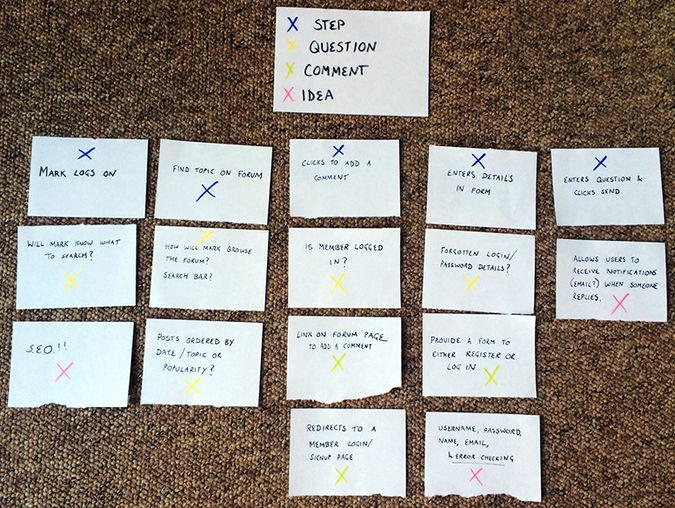
Web Dev: Personas, User Scenarios, Use Cases and User Journeys
Personas
“The purpose of personas is to create reliable and realistic representations of your key audience segments for reference.” – usability.gov
BOSH have a very varied target audience (perhaps wider than realistically viable for a project such as this), and this is reflected in my personas. They are all of varying age, status, ability and all want very different things from the BOSH website.
I have created the following 3 personas based on the previous user research.
Mark Donald
Marketing Manager
34 years old
Married, with two kids
Lives in Brighton
Mark works long hours, and has a hectic family life. He likes to keep fit but struggles having the energy and motivation to exercise after all his other commitments. His goal is to find the time to train for a marathon. His job means he is very tech-savvy.
Jane Taylor
Politics student
21 years old
Single
Lives in a flatshare in Brighton
Jane has a very full social life as part of being a student. She works hard, but often has late nights and knows she should take better care of herself. Her and a friend have made an arrangement to start running together, but neither of them has any knowledge of where to begin. She would like to have someone to point her in the right direction. She is also addicted to social networking and has no problems navigating the internet.
Julian Harrington
Retired civil engineer
66 years old
Married
Lives in Eastbourne
Julian has recently retired, and is looking for activities to fill his time. He has three young grandchildren, which has made him very conscious about his health. He has always enjoyed running, but work commitments didn’t allow him any regular training. Now he has more time, he would like to train for a 10km run. His son suggested using social media to find a training buddy/running club but he is very shy of technology.
Scenarios & Use Cases
Mark Donald wants to train for a marathon, but needs some advice about a training schedule. He uses a search engine to look for articles, and comes across a forum on the BOSH website in which runners are giving tips. He would like to ask a question because they seem very helpful and friendly in the forum, so he signs up as a member and posts his question. Someone responds almost immediately, and he is very impressed. He slowly becomes a more and more active member of BOSH, posting how his training is going and even signs up to events on the website.
Jane Taylor and her friend are complete beginners when it comes to running. They are discussing their plans to go home early from the pub they are in so they will be able to run in the morning, when someone overhears their conversation. The stranger tells them about BOSH and suggests they look into it. The next morning, after their run, Jane and her friend go online and look at the BOSH website. She finds some interesting information about running safety that she finds very useful. Her and her friend decide to sign up and take part in a group running session arranged on the site. She finds it very motivational.
Julian Harrington is very nervous about using the tablet his son bought him for his birthday, but while his wife is at a lunch date with friends, he decides to try and work out how to use it. He checks his emails, like his son taught him, and discovers a link to the BOSH website. It looks like a very good social opportunity, and a great way to spend his free time. He manages to look for events in his area, and sees there is a running meet that afternoon. He signs up to it and has a great afternoon meeting new people and enjoying running with people of a similar fitness.
User Journeys
I created the following User Journey from the first scenario above.
I found this task particularly useful to highlight possible errors in the user experience, and other things that could be improved. I need to make sure the website is created with thought to Search Engine Optimisation, error-checking and notifications to allow the user to stay updated with the forum.

